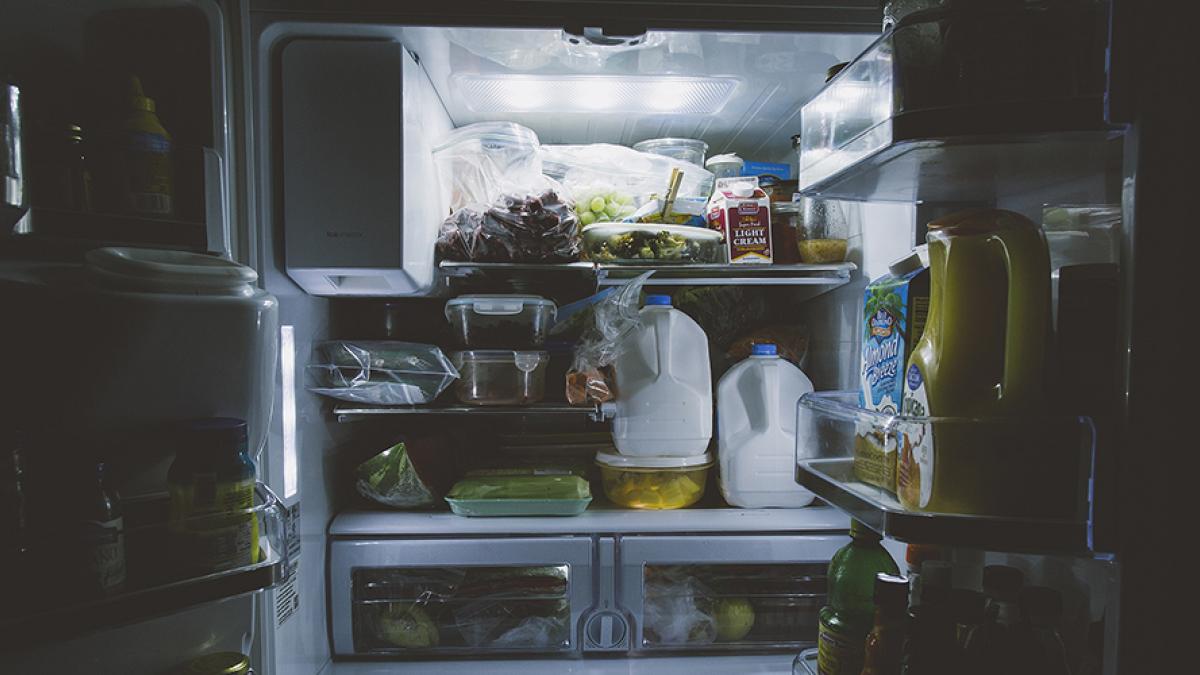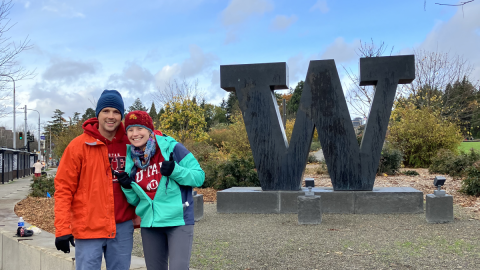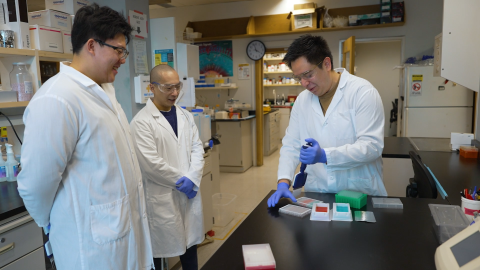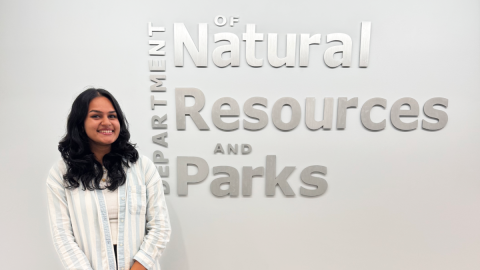I recently found leftovers in my fridge that were close to a week old—right on the line between acceptable and sketchy. I performed the tried-and-true smell test, made a judgment and popped them in the microwave.
The broccoli tasted fine, the rice was a little dry. All was going well until my mind wandered to a recent lecture on foodborne pathogens in my environmental microbiology course.
We had discussed the many opportunities for contamination as food makes the journey from farm to grocery store to kitchen to refrigerator to plate. I began to examine my broccoli more carefully: Had I left it at room temperature for too long? Had I re-heated it long enough? Were there invisible fungal spores in there?
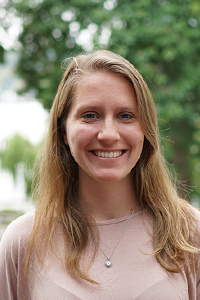
studying environmental health. Photo: Jon Sharpe.
The power of hunger (and the reality of a student budget) won out, and I dutifully finished my broccoli. I waited and wondered. I didn’t get sick.
Life is a risky business
At its core, environmental and occupational health is about identifying, preventing and eliminating potential health risks to humans.
One unintended consequence? As students in the UW Department of Environmental & Occupational Health Sciences (DEOHS), we spend many hours learning about, discussing and researching all the ways our everyday environment can harm us.
It’s enough to make you a little bit paranoid.
Pass the disinfectant, please
During a recent lecture on the risks of microbial contamination in pools and hot tubs, DEOHS Adjunct Lecturer Charles Easterberg told us: “There are a lot of things I didn’t know, back when I used to enjoy life.” The lecture prompted MPH student Kori VanDerGeest to say fervently as she left the classroom: “I will think twice before using a hot tub in the future!”
MPH student Jessica Porter told me that she is more hesitant to take antibiotics after learning about the negative effects they can have on your microbiome.
Sarah Philo, a first-year PhD student, had the misfortune of participating in a class discussion on food safety and Salmonella one day before Thanksgiving.
Her Thanksgiving prep and clean-up the next day looked like a microbiology laboratory protocol, complete with antiseptic wipes to open and close her refrigerator door and a generous layer of disinfectant applied to every kitchen surface after handling the raw turkey.
An ounce of prevention
What is the point of all this scary science?
I realize that the general public probably feels the same way. News articles are published every day that reveal the risks of sugar, bacon, stress, car exhaust, sleep deprivation, too much sleep, working outdoors, working indoors...the list goes on.
As environmental health students, we have the opportunity to improve communication with the public about the risks as well as the potential solutions. As future public health professionals, we can highlight ways to avoid harm or discover new ways to prevent it in the first place.
Learning to live sustainably
And it’s not just about prevention. The field of environmental and occupational health is increasingly focused on the opportunity to apply what we’re learning to design cities, food supply chains, workplaces and, ultimately, societies that function in a fair and sustainable manner.
Individually, many of us are already making better choices as consumers thanks to what we’re learning at the UW.
“It’s made me more conscious of water—how much I use and how I can conserve it,” said Philo.
Richard Taing, a first-year master’s student, says: “I used to buy airline tickets based on price alone, but now I look at the number of connections, and I’m trying to think about reducing my carbon footprint when flying.”
If all of this research and learning means that we can live more sustainably—and perhaps influence others by our example—then I think I can learn to live with a little paranoia.
I never particularly enjoyed hot tubs anyway.
